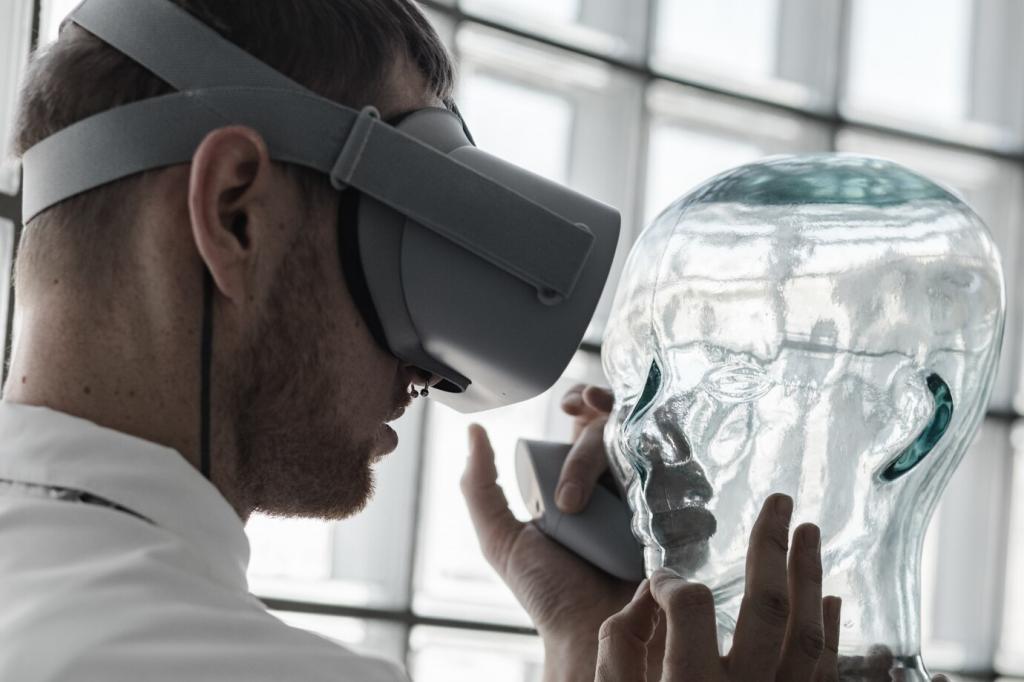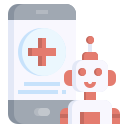AI-Driven Innovations in Personalized Medicine
Artificial intelligence is rapidly transforming the field of personalized medicine, enabling healthcare providers to develop tailored treatment plans, predict patient outcomes, and streamline drug discovery processes. By harnessing vast datasets and sophisticated algorithms, AI technologies empower clinicians to deliver more accurate diagnoses and therapies that consider the unique genetic, environmental, and lifestyle factors of each individual. The convergence of AI and personalized medicine promises to revolutionize patient care, improve health outcomes, and make precision healthcare accessible to more people around the world.

Advanced Imaging Analysis
AI-powered imaging tools are redefining how medical images such as X-rays, MRIs, and CT scans are interpreted. These systems can detect subtle anomalies that may elude even the most experienced human eyes, offering timely and precise assessments of health conditions. By integrating AI into imaging workflows, radiologists are empowered with second opinions in real time, reducing diagnostic uncertainty and expediting the path to optimal treatment. As a result, patients benefit from earlier interventions and improved outcomes, particularly in conditions like cancer and neurological disorders.

Genomic Data Interpretation
The analysis of genomic information is a cornerstone of personalized medicine. AI algorithms excel at sifting through massive volumes of genetic data to pinpoint variants associated with specific diseases or therapeutic responses. By mapping out genetic predispositions and risk factors, AI enables clinicians to craft individualized care strategies that address each patient’s unique genetic makeup. This level of personalization not only leads to more effective treatments but also helps in predicting adverse reactions, thereby increasing patient safety and satisfaction.

Predictive Modeling for Drug Responses
Machine learning models can predict how different individuals will respond to a specific medication based on their genetic, biochemical, and lifestyle characteristics. These predictive capabilities enable pharmaceutical companies and clinicians to identify which patients are most likely to benefit from a new drug, significantly reducing the risks of ineffective treatments. As a result, clinical trials can be better targeted, minimizing time and resources spent on less promising avenues and advancing highly individualized therapeutics.
High-Throughput Screening Automation
AI-driven automation in drug discovery has made high-throughput screening more efficient and insightful. Algorithms are now capable of evaluating vast chemical libraries to identify potential drug candidates with desired properties at an unprecedented pace. This rapid screening process accelerates the early stages of drug discovery, reduces costs, and increases the likelihood of identifying successful compounds. Ultimately, it allows for the development of targeted therapies tailored to specific patient populations, enhancing treatment efficacy and minimizing side effects.
Optimizing Clinical Trials
The application of AI to clinical trial design and management is making trials more adaptive and precise. By analyzing real-world patient data, AI systems can suggest optimal patient cohorts, predict potential trial outcomes, and identify factors affecting patient adherence or response. This intelligence improves patient recruitment and retention strategies while reducing cycle times for trials. The result is more conclusive evidence on drug effectiveness and safety, paving the way for faster approvals and broader access to innovative medicines.
AI systems excel at stratifying patient populations based on their risk of developing certain conditions. By analyzing historical data, lifestyle factors, and genetic markers, these predictive models enable care teams to allocate resources more efficiently, focusing attention on those most likely to experience adverse health events. Risk stratification is fundamental for early intervention strategies, ultimately reducing hospitalizations and enabling patients to manage their health more proactively and effectively.
Predictive Analytics for Proactive Care

Bridging Data Silos for Integrated Patient Care
Unified Health Records Analysis
Healthcare data often resides in disconnected formats and settings, making it difficult to obtain a holistic view of a patient’s history and needs. AI-powered platforms can aggregate and analyze structured and unstructured data from electronic health records, laboratory results, imaging files, and more. This integration provides clinicians with a single, unified source of truth, improving care coordination, reducing redundant tests, and supporting more informed decision-making.
Cross-Platform Data Integration
Patients interact with multiple healthcare providers, devices, and digital platforms throughout their medical journeys. AI technologies facilitate seamless data exchange and interpretation across these various sources. By standardizing and contextualizing diverse information, AI ensures nothing vital is overlooked, streamlining workflows and creating more complete patient profiles. Integrated data enables teams to spot patterns that would otherwise remain hidden and to develop more coordinated, personalized care strategies.
Securing Patient Privacy and Data Integrity
As more sensitive health information is consolidated and analyzed by AI, maintaining privacy and data integrity becomes paramount. Advanced AI systems incorporate rigorous security protocols, including encryption, access controls, and anomaly detection to guard against breaches. Additionally, AI can identify and correct data inconsistencies, ensuring that patient records are both accurate and protected. These measures foster trust among patients and practitioners, enabling the continued growth of data-driven personalized medicine.
Real-Time Decision Support Systems
Instant Diagnostic Recommendations
Armed with real-time access to patient information, AI-powered diagnostic modules deliver recommendations to clinicians as soon as new data is entered. These systems compare patient profiles with vast repositories of medical knowledge, suggesting likely diagnoses or necessary follow-up actions. Instant support means clinicians can act faster, reducing the time to treatment and minimizing the chances of missed or delayed diagnoses, particularly in complicated or rare conditions.
Dynamic Treatment Adjustments
Patient health is dynamic, often requiring treatments to be adjusted in response to new information or changing circumstances. AI-enabled clinical decision support tools can monitor patient progress, interpret incoming data, and recommend modifications to ongoing therapies as needed. This adaptability ensures that interventions remain closely attuned to the patient’s evolving needs, optimizing effectiveness and reducing the risk of adverse outcomes.
Evidence-Based Best Practices Integration
AI decision support systems continuously update their clinical guidelines based on the latest research and real-world evidence. By integrating these best practices into the care process, clinicians receive ongoing, evidence-backed recommendations tailored to each patient’s context. This helps eliminate variability in care, improves adherence to proven protocols, and ensures that patients benefit from the collective expertise of the global medical community.

Previous slide
Next slide

